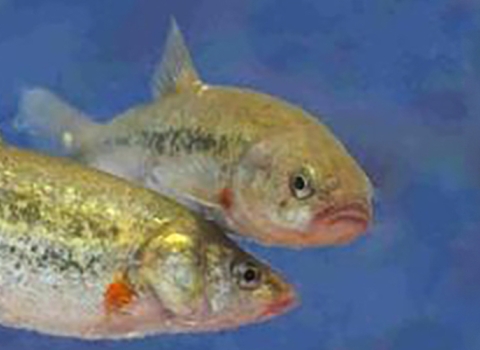By U.S. Fish and Wildlife Service Director Aurelia Skipwith
Originally appeared here.
As last year came to a close, I reflected on partnerships the U.S. Fish and Wildlife Service (Service) has built and strengthened. Recently, the Service was added as a party to a Memorandum of Understanding (MOU) signed by Ducks Unlimited, the National Cattlemen’s Beef Association (NCBA), Public Lands Council (PLC), and Safari Club International (SCI). The agreement codifies the shared and mutually beneficial natural resource management goals of these diverse organizations.
Under the agreement, the partners will continue to cultivate healthier ecosystems and wildlife populations through hunting, fishing and livestock grazing. Cattle and beef producers, hunters, conservationists and government agencies often work together to conserve open space because wildlife and livestock don’t recognize public and private boundaries. Even though the Service manages 95 million acres, approximately half of all species on the endangered species list depend on private lands. When private land managers collaborate with the Service to build healthy habitats, everyone wins.
One of the benefits of this partnership will be the exchange of resource knowledge between veteran ranchers and refuge biologists, facilitated by the NCBA. Cattle ranchers accumulate decades of observations on plant growth, water availability and the prevalence of invasive species invasive species
An invasive species is any plant or animal that has spread or been introduced into a new area where they are, or could, cause harm to the environment, economy, or human, animal, or plant health. Their unwelcome presence can destroy ecosystems and cost millions of dollars.
Learn more about invasive species across their grazing areas. This allows them to move cattle to the most environmentally friendly pastures and even potentially reduce the risk of wildfires. When ranchers share this knowledge with refuge managers, they improve our collective ability to preserve imperiled habitats like the sagebrush sagebrush
The western United States’ sagebrush country encompasses over 175 million acres of public and private lands. The sagebrush landscape provides many benefits to our rural economies and communities, and it serves as crucial habitat for a diversity of wildlife, including the iconic greater sage-grouse and over 350 other species.
Learn more about sagebrush -steppe.
The partners will also work to maintain cultural and historical values associated with public lands and empower local communities. In the past, Ducks Unlimited has helped us preserve our hunting culture for future generations by educating hunters and promoting the Duck Stamp, an essential source of funding for conservation projects. Through the Walk a Mile in My Boots NCBA program, ranchers and Service staff have swapped day jobs in a work exchange that doubled as a cultural exchange. And all the signatories encourage their constituents to get out and connect with their local public lands.
I look forward to continuing to work with partners who share a common interest in the conservation of America’s natural resources. The NCBA is the cattle industry’s largest and oldest national trade association, representing American cattle producers who manage a large part of America’s private property. Ducks Unlimited is a leader in wetlands and waterfowl conservation. They conserve, restore, and manage wetlands and associated habitats for North America’s waterfowl. These habitats also benefit other wildlife and people. The PLC is the only national organization representing the 22 thousand western ranchers who hold federal grazing permits and care for over 250 million acres of federal public lands. And SCI is a leading voice in the fight to protect the freedom to hunt and promote wildlife conservation, both in the United States and internationally.
This MOU fortifies decades of collaborative work. Throughout the years, each of the members have coordinated projects that provided multi-sector benefits. I am proud of the meaningful conservation work the Service will continue to achieve through our renewed relationship. This multi-partner, multi-use approach includes diverse stakeholders in the management of our nation’s public lands and resources and ensures our strategies remain resilient through the next decade.
I have family across the United States involved in hunting and fishing, and I come from a family of farmers and ranchers; these partners and the Trump Administration have helped to preserve part of my family’s heritage. These collaborative efforts and commitment to our natural resources will ensure that the American public can enjoy their natural heritage for generations to come.


